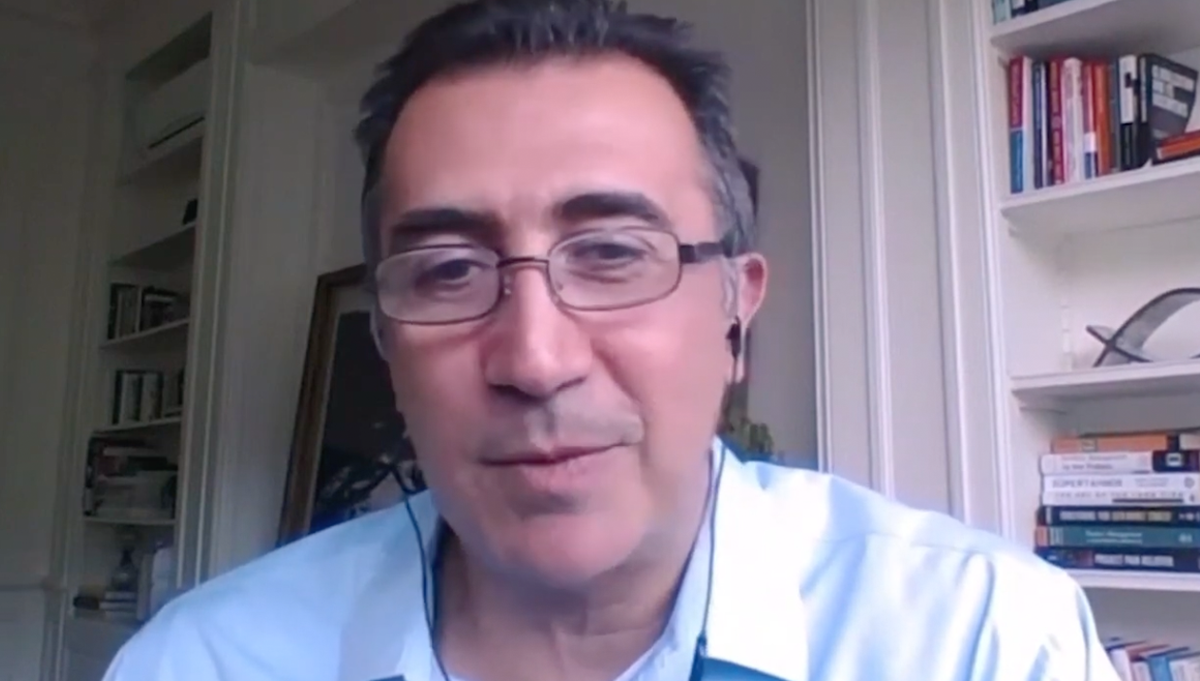August 31, 2010 Vol. 3, Issue 8
Before Google, if you had to find out if a whale has a spleen, how many phone calls would it have taken?
The question above is known as the “whale spleen problem.” Try to answer it. Who would you call? An aquarium? A university? The point is that the ability to find the knowledge to solve a problem, run a program, or build a team is vital to organizational success. This was the topic of a two-day forum on knowledge management hosted by the Office of the Chief Knowledge Officer at Goddard Space Flight Center (GSFC).
From an 8,000-pound balloon payload dragging through a line of parked cars to an oil well hemorrhaging crude into the ocean, government and industry participants shared stories, lessons and insights on the importance of managing knowledge. As one attendee put it, knowledge management is the lifeblood of organizations—without it, survival is tenuous. But this is not always apparent.
Orlando Figueroa, GSFC Deputy Center Director for Science and Technology, opened the forum by discussing the importance of support from leadership for knowledge management. Leadership support is growing at Goddard with continued efforts to host forums, storytelling events, and wikis. The support of leadership is a strong indicator of successful knowledge management, said Dr. Ed Rogers, Goddard’s Chief Knowledge Officer. When the leadership knows who you are and directs project managers to you, you know you’re doing your job and having an impact.
The forum also featured external perspectives from Raj Datta, MindTree Consulting; Kent Greenes, Greenes Consulting; Brian Hackett, Apex Performance; and Rob Johnston, Chief of the Lessons Learned Program at the Central Intelligence Agency (CIA). Politics, change, the pace of work, and resources all influence a program’s success within an organization, but leadership support is vital. At the CIA, according to Johnston, the lessons learned program went through several iterations before succeeding. Johnston attributed their success largely to the support of the leadership within the organization. Greenes has observed that successful knowledge programs show, celebrate, and demand the impact of what they are doing. But most importantly, he said, successful programs keep knowledge management on the leadership’s agenda.
Doug McLennan, Beth Keer, Sandra Cauffman, and Bob Menrad of GSFC’s Flight Projects Directorate shared insights about success, failure, and learning. All agreed that listening to others and self-assessments are essential to the learning process. These activities are always works in progress, noted Cauffman. To this day, Menrad revisits the work of his mentors. Learning also involves being wrong and humbled. When McLennan left working in the lab, he was convinced that managing the technical knowledge would be the hard part, he recalled. Wrong. “Every problem you’re going to run into will have to do with people,” he said, “but you also have to realize all of your successes will be because of people.”
Other presenters included Jon Verville, who is leading the wiki movement at GSFC; Michelle Thaller, Assistant Director for Science Communication and Higher Education, who offered insights about how knowledge circulates in the world of scientists; Peter Hughes, GSFC Chief Technology Officer, who discussed the knowledge coordination across center technology offices; Steve Denning, author of several books on knowledge management, who discussed radical management principles for keeping knowledge management on the agenda; and Jay Pittman, Chief of Range and Mission Management Office at Wallops Flight Facility, who spoke about organizational silence.
Larry Prusak, Editor-in-Chief of ASK Magazine, moderated the final panel, which included Adrian Gardner, Chief Information Officer at GSFC, Robin Dixon, GSFC Library Director, and Mark Goans of the Systems Review Office. The panel discussed the use and expansion of embedded “knowledge medics” on project teams. These individuals, who could be librarians or information officers, would fit in seamlessly with the team and function to fill knowledge gaps.
The forum closed with a trip to the Goddard Visitor Center to see the “Science on a Sphere” exhibit and reflect on the forum’s discussions. A common sentiment was that knowledge management, while critical to organizations, is passed off as a supplement for success. In order for an organization to thrive, knowledge cannot be static, whether the work is launching rockets, selling computers, or drilling oil.






